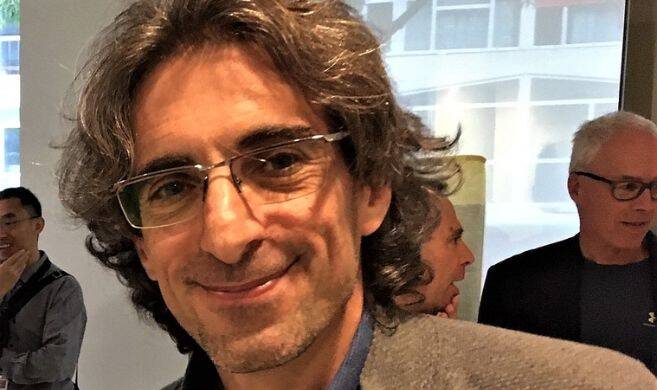Itzhak, what motivated you to plunge into this field 35 years ago?
I think in hindsight I can find many reasons. I was studying mathematics and decision making, which was challenging but also elegant. The decision sciences field has links with real life, you see examples of its manifestation every day, making decisions is not something that is foreign to us. We make decisions all the time. Think about your own decisions: a career choice, where you want to live, or questions of this type. And then there are government decisions, whether it's in the fields of health, economic, wars, and so on.
These decisions are often taken under severe uncertainty. In the sense that you don't really know what the probabilities are, you don't know what would happen if you engage on this path, or in this war or not. What could happen in the financial crisis we’re experiencing today? Or if we face another COVID pandemic? There's a very nice theory and I think this is what made me fall in love with the field. But if you see that things aren’t working again and again, despite this very nice mathematical structure that’s there - well, the question becomes: how do you resolve this crisis, how do you bridge this gap between theory and reality? So, I tried to say that there are two ways to go about it. One is to make bring theory closer to reality, which is basically what behavioral economics is trying to do, and another direction is to preach the theory and convince people that they have to be more resilient and patient.
You also work on the definition of probability, notions of rationality, non-Bayesian decision models and related fields. These are often highly complex esoteric fields. How do you attempt to bring them closer to the layman and non-specialist?
Well, here I could start with an example that talks to people. Let's say that 18 months ago I asked you what the probability of a war between Russia and Ukraine would be. In this particular case, I would say it's difficult to put a probability number on that. But just think about it for a second: your Prime Minister or President is now making decisions based on their own hypothetical number. Do you want them to plug in some number just because that's their intuition? And in this way, I try to explain that we do have a real problem with quantifying uncertainty. Okay, now let's try to see what the alternatives or different models are. Some of them are more or less sophisticated mathematically, then we can get into mathematical arguments about what's good or less attractive in this or that model.
We are decision-making animals. This is what we do all the time.
So, then it starts depending on the how much time you have to make those decision and the level of sophistication. But the questions are very real. And again, it's also true when people make decisions about their own investments, on their own careers and personal decisions. Uncertainty is everywhere. And we are decision-making animals. That's what we do most of the time.
You continue to collaborate with colleagues here at HEC Paris, for example on a paper called “Decision Theory Made Relevant”, with HEC Paris colleagues Olivier Sibony and Maria Rouziou. Could you explain to us what the focus in this publication was?
That particular paper was a relatively popular piece, something accessible to non-specialists. We explained the difficulties with finding a particular model and using probabilities or not. Or maybe not even thinking in terms of scenarios, but more in terms of cases, past cases. And the main message we're trying to convey here is that decision theory is also useful even when it doesn't give you the answer. There are some cases that are probably what the founding fathers had in mind in which you give me a problem, and I say wonderful, I know how to solve it. I have the data. So, it could be Google Maps or Waze or something like that: you would tell me: “I want to get from point A to point B,” and I say: “That's good because I have the map already on the computer and I have some real online, real-time data on traffic. And I know how to compute the shortest path. We have algorithms that do it, the answer is there, fine.” There's no point arguing because you know it's been solved.
We do know from a large body of work that intuition can be quite misleading.
However, there's another range of problems in which we don't have the answer because there’s lots of uncertainty and not enough data. For instance, if we talk about the probabilities of war, I'd say: ‘Who knows? We've had lots of wars, but each one of them is unique. And moreover, they are causally intertwined, I cannot use the past data just as a way to project into the future. I have to take into account the fact that one war can cause another, maybe because of a diplomatic failure. So, there's room for lots of causal theories. And I don't have the ability to experiment.’
As a decision maker, you tell me what the problem is, as a decision theorist, I put it on the computer, send it back.
But that doesn't mean that you should only rely on intuition because we do know from a large body of work that intuition can be quite misleading and lead you astray. As a result, you could do things that you would find silly. You would look at them and say: ‘Wow, I should have done better.’ So, this means that there is room for decision theory. It’s not necessarily the tool that gives you the one correct answer. But it's something that is used for a dialogue, so there will be a dialogue between the decision maker and the decision theorist in which you could try to see what choice the decision maker likes to make. So, one end of it would be very simple. As a decision maker, you tell me what the problem is, I put it on the computer, send it back.
On the other hand, you tell me: ‘Look, there's some decision here in politics. What do you know?’ And I say: ‘Right, I don't know anything. But tell me what you want to do. You are the smart person, you are the politician. You are the elected leader. Once you know what you're going to do. Just a minute before you actually do it, let's sit down and try to justify it. With the tools of decision theory.’
The very use of formal models can help us now to be immune against framing effects.
The very use of formal models can help us now to be immune against framing effects, for example. If we use models of uncertainty, we can avoid this or that kind of mistake I believe that there's room for decision theory in our discourse. It’s important in creating a dialogue. Let's not just assume that either you could send it to a programmer or to program it once and for all on your phone or forget it about it totally. And the other message is: Let's make sure that we have a sufficiently broad range of decision theories available to different decision makers who could relate to them. Let's not be too dogmatic as decision theorists and claim: ‘Oh, I know this is the way to think about it.’ Because then you could look at me and say: ‘But it doesn't really fit my problem, so thank you, I’ll move on.’
The greatest or most notorious leaders tend to talk to their nations in terms of there being “One Truth and I know it”.
Turning back to politics. Whatever the system by which one elects leaders, be it democratic or not, it's not very common for leaders to say there is uncertainty and we'll figure things out together. The greatest or most notorious leaders, those that we admire and those we abhor, tend to talk to their nations in terms of there being “One Truth and I know it”. And the system selects them and maybe to some extent we, the public, want this kind of a parent figure or someone who'd say: “I know what truth is and follow me”.
But sometimes they cannot go out on a limb like that. I think that in those cases we should be open to the idea that the leader is a human being, and we should not put too much pressure on them to tell us what “The Truth” is. Because they might not know and if we are a bit more mature in this approach and more democratic in the sense that the leaders can share with us their uncertainty, then we can indeed be more humble and admit that certain things we do not know, certain things we cannot even put probabilities on. And that's life. Let's bend this together and try to make a decision that we will feel comfortable with.
References heard in the podcast:
1. Decision Making in Complex & Volatile Times – The Black Swan Decision Framework for Executives, July 2020
2. Congressional Decisions: Crash Course Government and Politics #10, July 2020









